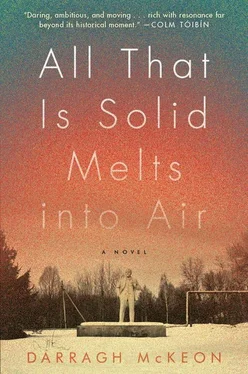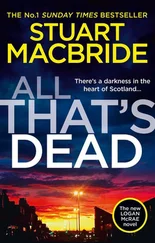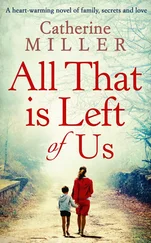His team is already gathered around the bed. An infant, three weeks old, lies on the operating table, dwarfed under a surgical blanket.
Grigory looks at the tiny girl, her eyes peacefully closed, her neck hardly bigger than his wrist. A human life in its most vulnerable state: a shallow-breathing infant resting on a narrow ledge between the twin precipices of birth and death. An urge rises in him to touch the child in reassurance, let her feel the warm hand under his glove, but he looks away from the peaceful face, from the flickering eyelids, turns his concentration to her beating chest.
The child has a congenital heart disease, truncus arteriosus—rare everywhere but here—her aorta and coronary and pulmonary arteries all emerging from a single stalk. A complicated operation; one that will take hours. He’ll have to separate the pulmonary arteries from the aortic trunk and patch any defects that emerge, then close two ventricular septal defects, holes in the walls between the two lower chambers of the heart. Lastly he will place a connection between the right ventricle and the pulmonary arteries.
They have a single cardiopulmonary bypass machine in the clinic—continuously in use due to the sheer numbers of surgeries they are required to perform—into which they will divert her blood.
He takes the scalpel and rotates the handle in his fingers, readying himself. He presses into and pierces the small chest, feeling the skin give way. He holds back the fragile ribs with a clamp, then inserts a thin tube into the femoral vein to withdraw blood from the body, passing it through the machine to be filtered, cooled, oxygenated, and returned by way of the artery. Through the magnifying lenses that sit on top of his goggles, he can see her quivering heart, light purple, carrying on in its dutiful rhythm. So tiny, half the size of his fist.
They work at a pace now, other hands contributing, entering and exiting his line of sight. Grigory hears no sound, not the bleep of the CBM machine nor the mutterings of his team, the suction of the vacuum pump that the junior registrar uses to keep the area clean. This is the stage when he functions only by vision and touch. These are the moments for which he is respected, for which all his silences, his distance, are forgiven him by his subordinates. They too understand the demands of the work, many of them running on false energy, anything to get them through. Grigory has noticed an attendant or a nurse move swiftly the few times he’s entered the storage room they use as a dispensary. He is beyond asking questions. Medical supplies are one of the few things they have in sufficient quantity, and his theatre runs flawlessly. Everything else is outside his concern.
If the team need to communicate with him, they wave a finger in the periphery of his visual field and, on the few occasions they do this, he looks up, taking a brief moment to locate himself in his surroundings, sound streaming back in, a sensation that reminds him of emerging from the swimming pool. He stops only to drink from a straw that the nurse holds close, attuned to his signals, or to communicate with his staff, no more than a few fragmented sentences. He works steadily throughout, neither too confident nor overly tentative. He has to feel his way through, let his thoughts merely drift along the surface of his mind. Hours in this state of intensity.
Sweat trails down the ridge of his skewed spine. He hasn’t had a swim in six months, and this is taking its toll, his scoliosis asserting its grip on him in the hours before bed, so that most nights he can be found lying twisted on the floor of his room, contorting his body at various angles, breathing deeply, waiting for his muscles to relent. Quick spasms dart their way up his back, but he ignores them. The pain can come later.
Nearing the end, he sews Gore-Tex patches into the septum holes, secreting them inside the lining of the heart, where they will expand as the organ grows, if it does grow.
When he is finished, he can put down his instruments and look at her again. Perhaps she will live, he thinks. Perhaps there is no radiation stealthily making its way through the long grass of her metabolism. These infants, to him, are flickering flames in the midst of so much darkness, so much extinguished hope. He wants to cup his hands around them, protect them from the pervading winds.
His junior closes up, and Grigory walks into the afternoon sunlight, discarding his surgical wear into the appointed basket as he goes. Outside, he bends over, hands on his knees, and takes in great gulps of fresh air, free now of responsibility, however temporarily.
Day after day like this.
He can feel himself becoming less distinct, over time, becoming like a photograph left out in the sun, curling at the edges.
He lets out another breath.
“You’re just out of surgery.” A woman’s voice. A nurse he can’t place.
“Yes,” he says. “I’ll be ready again in a few minutes.”
She puts a warm hand on his shoulder. Grigory wishes the heat would move down to his coccyx; it might provide some relief. He opens his eyes, unfolds with difficulty. She isn’t a nurse. It’s a woman, her face lean, cheekbones that direct his glance towards her eyes. A stranger. He would like to make an effort, but he turns away, too tired to affect politeness.
“I wanted to thank you.”
He moves to the door. “Don’t mention it.”
“He loves that dog, it’s given him a new lease of life.”
Grigory pauses.
“I thought it was the operation that left him weak, but he needed a companion. You understood this. I, his own mother, didn’t.”
He turns back, his mind spooling through the previous weeks.
“Your son…” He clicks his fingers, trying to spark his memory.
“Artyom.”
“Of course, yes.”
“He’s doing well?”
“Very well. He’s coming back to himself again. The dog, I don’t know what… it took away his anger.”
Her pupils wide and dark, soaking in the daylight.
“I’m glad.” Grigory hesitates. “More than glad. But I didn’t understand anything. The dog needed help. Artyom is a good helper.”
She nods, smiling to herself, then looks up. The man before her has a kind of frantic weariness to him, as though he is skimming across the surface of his days. She can tell he will lose momentum soon, plunge into deep waters. He runs a hand across his face, and she senses that he too is aware of this.
“We all need a good helper,” she says.
Now a nurse arrives, stands at the doorway, looks at her watch without speaking, reluctant to draw him back to the theatre.
“They need you again so soon?”
“I’m sorry.”
The woman takes his hand. The sensation so foreign to Grigory. He is the one whose job is to touch; prodding, pinching. Her skin has the consistency of thick cream.
“You understand more than you think, Doctor. You already know that medicine isn’t magic. Most of us still believe that everything can be healed with a swipe of your scalpel.”
He pats her hand and withdraws.
“It was good to meet you,” he says.
“Yes.”
The nurse holds the door for him, and he walks inside, passes the viewing window for the theatre, another young life laid there in readiness.
AN ELK BOLTS into the depths of the wood, surging into the dark with a burst of rolling muscle. Artyom is shocked into stillness, then curious. He turns and follows, carrying the kindling which he has tied in a sling behind his back. The prints of the animal sit clear and fresh on the snow. If he’s lucky, he’ll catch sight of it again when it pauses, calms its fears. He treads as quietly as possible, spreading his weight from heel to toe. The snow shallower as the trees pack closer. He hears a scream and freezes. His first instinct: it’s a girl in trouble. Artyom drops the kindling to the ground and dips out from under the sling. He runs forward twenty steps and then sees the elk again, its head raised to the treetops, its vast antlers tilted downwards. A beautiful beast, pushing out this shrill noise, at odds with its bulk. A plaintive cry, a keening. Then it quietens, raises its head, and disappears once more.
Читать дальше












